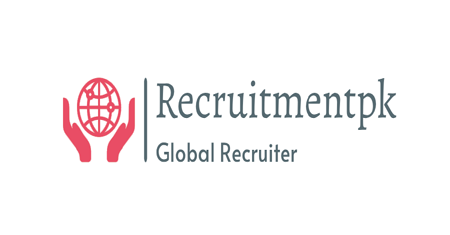The job market is shifting rapidly and for those aiming to work abroad, it’s never been more important to stay ahead of the curve. Whether you’re eyeing roles in the Gulf, Europe, or Southeast Asia, the skills employers want in 2025 are evolving with global trends like digital transformation, climate adaptation, and workforce automation.
So, what should you actually learn if you want a competitive edge for overseas opportunities in 2025 and beyond?
This guide cuts through the noise and focuses on the real-world, high-demand skills that employers across the world are actively seeking from construction sites in the Middle East to corporate offices in Europe and Asia.
1. Digital Literacy (It’s Not Optional Anymore)
Digital literacy doesn’t mean you need to be a coder or tech wizard. But if you can’t use basic tools like spreadsheets, project management software (like Trello or Asana), or communication platforms (like Slack or Zoom), you’re going to fall behind fast.
In regions like the Gulf, even traditionally non-tech jobs like hospitality, logistics, and healthcare now require digital know-how. Employers want staff who can navigate automated check-in systems, track digital orders, or use HR platforms.
What to learn:
-
Microsoft Office Suite (especially Excel)
-
Google Workspace (Docs, Sheets, Drive)
-
Project management software (Monday.com, Trello)
-
Video conferencing tools (Zoom, Google Meet)
2. Skilled Trades with Certification
Countries like Kuwait, Saudi Arabia, and the UAE still have huge demand for blue-collar workers but they’re becoming more selective. Having a formal certification or vocational training can make the difference between being hired or passed over.
High-demand trades:
-
Electrical technicians
-
Welders (especially TIG and MIG certified)
-
HVAC specialists
-
Elevator mechanics
-
Pipefitters and plumbers
Pro tip: Many Gulf employers now require third-party certification like City & Guilds or international equivalents. Get certified before applying.
3. Healthcare Support Skills
The healthcare sector is expanding fast, especially in the Gulf and Europe, due to aging populations and increased demand for personalized care.
Even if you’re not a nurse or doctor, there’s growing need for:
-
Medical assistants
-
Caregivers
-
Physiotherapy aides
-
Medical billing specialists
Extra edge: Courses in medical English or patient communication will set you apart especially in multilingual environments like the UAE or Germany.
4. Language Skills (English + One More)
While English remains essential, knowing an additional language (even basic level) can boost your value. For example:
-
Arabic: For jobs in Kuwait, Saudi Arabia, and Qatar
-
German: If you’re targeting Germany or Austria
-
Russian or Turkish: Useful for work in Central Asia or Eastern Europe
Language courses are now widely available online for free or low cost. Apps like Duolingo, Memrise, and Babbel can build a strong foundation quickly.
5. Logistics & Supply Chain Management
As global trade continues to rebound post-COVID and adapt to new regional alliances, logistics skills are becoming critical especially for overseas jobs tied to shipping, construction, oil and gas, or food industries.
Skills in demand:
-
Inventory control
-
Freight documentation
-
Customs compliance
-
Warehouse management systems (WMS)
Certifications to explore:
-
Certified Supply Chain Professional (CSCP)
-
Logistics Management courses (even short ones help)
6. Green Skills & Sustainable Practices
Gulf countries are investing heavily in sustainable development as part of their Vision 2030/2035 plans. That means jobs in energy, construction, and even agriculture are shifting toward eco-friendly practices.
Skills to focus on:
-
Renewable energy systems (solar, wind)
-
Sustainable construction techniques
-
Waste management
-
Environmental monitoring
Good to know: If you’re a technician or site supervisor, adding a basic sustainability course can future-proof your role.
7. Soft Skills That Set You Apart
Technical skills will get you hired but soft skills will help you grow and stay in the job. In a multicultural workplace, employers increasingly value:
-
Communication skills (especially across cultures)
-
Problem-solving mindset
-
Adaptability (especially for shift-based work or relocations)
-
Time management (crucial for offshore or project-based jobs)
These may sound generic, but employers now test for them during interviews sometimes even more than technical skills.
8. Cybersecurity Awareness
Even if you’re not in IT, basic cybersecurity awareness is a must. Employers want staff who don’t fall for phishing scams, misuse company data, or ignore privacy protocols.
Skills worth learning:
-
Email and password hygiene
-
Basic data protection rules
-
Secure online collaboration
-
Mobile device security
Free tools to learn:
-
Google’s Cybersecurity Awareness training
-
Microsoft’s Security Compliance Toolkit
9. AI & Automation Understanding (For Everyone)
We’re not saying you need to build AI models. But knowing how automation is changing your job and learning how to work with tools like ChatGPT, AI chatbots, or automated CRMs is a massive plus.
If you’re a:
-
Customer service agent: Learn how to use AI ticketing platforms.
-
Accountant: Learn how AI-based billing tools like QuickBooks or Xero work.
-
Recruiter: Use AI-driven sourcing tools.
The future workplace is not about replacing humans it’s about combining human skill with machine speed.
10. Remote Collaboration & Online Work Culture
Even for overseas jobs, much of the onboarding, communication, and training now happens online. If you’re not comfortable with digital tools or remote work culture, you may struggle to keep up.
Key tools to learn:
-
Zoom & Microsoft Teams
-
Shared cloud drives (Google Drive, Dropbox)
-
HR platforms like Workday, BambooHR
-
Online scheduling (Calendly, Google Calendar)
Final Thoughts
Overseas job markets are shifting and fast. Whether you’re aiming for Kuwait, Germany, the UAE, or beyond, employers are looking for a mix of practical skills, digital fluency, and professionalism.
You don’t need to learn everything at once. But picking two or three of these skills and committing to them in 2025 could drastically increase your chances of landing a well-paying job abroad.
Start with what fits your current profile and build from there. A technician can add green building practices. A nurse can boost language skills. A warehouse worker can learn inventory software.

